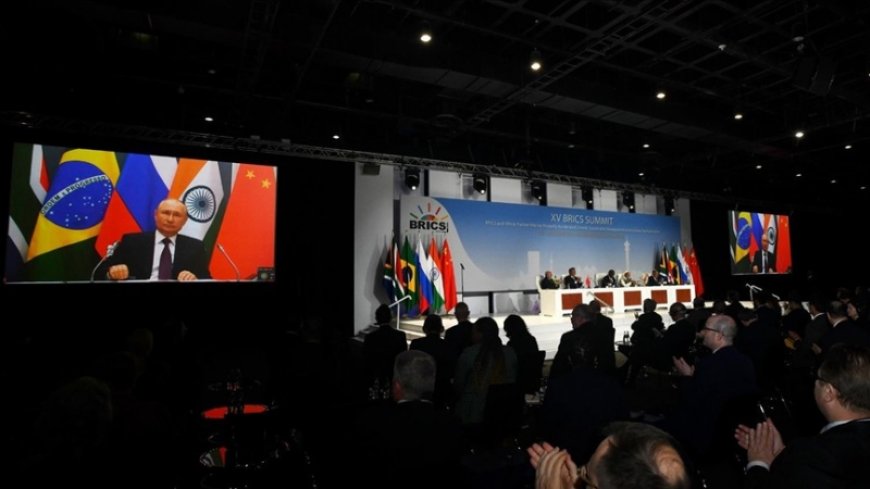BRICS Considers Formation of Parliament as Putin Signals Future Development

During the 10th round of the BRICS Parliamentary Forum in St. Petersburg, Russian President Vladimir Putin hinted at the possibility of the BRICS group forming its own Parliament in the near future. The forum, which gathered parliamentarians from Brazil, Russia, India, China, and South Africa, discussed ways to enhance legislative cooperation within the emerging economies bloc.
President Putin, addressing participants, highlighted the potential for regular parliamentary meetings to accelerate the establishment of a formal parliamentary structure for BRICS. He expressed optimism about the idea, stating, "BRICS currently does not have an institutional structure of Parliament, but I believe this idea will be achieved soon. I believe your platform will have a big contribution in this."
The Russian leader's remarks underscored the growing institutional aspirations of BRICS, a group that has expanded beyond its original five members of Brazil, Russia, India, China, and South Africa. Earlier this year, Iran, Ethiopia, Egypt, and the United Arab Emirates joined the bloc, signaling broader geopolitical influence.
On the sidelines of the forum, President Putin held discussions with Zhao Leji, Speaker of China's Parliament, and Tulia Ackson, Speaker of Tanzania's Parliament. These meetings emphasized the diplomatic efforts to strengthen inter-parliamentary ties within BRICS.
The economic significance of BRICS was also highlighted, with data from the International Monetary Fund (IMF) showing that the group collectively represents 36% of global GDP in terms of purchasing power parity (PPP), surpassing the G7 group of developed countries. BRICS countries also account for 25% of global trade and 40% of oil production, underscoring their influence in global economic dynamics.
The prospect of a BRICS Parliament signals a deeper integration of legislative processes among member states, potentially enhancing their collective influence on global issues ranging from trade and finance to geopolitical stability. As interest in joining BRICS grows among countries from Africa, Asia, and Latin America, the forum's role in shaping future geopolitical alignments is set to become increasingly significant.
The discussions at the BRICS Parliamentary Forum reflect a pivotal moment in the bloc's evolution, as it moves towards establishing formal institutional frameworks to complement its economic clout on the world stage.













































